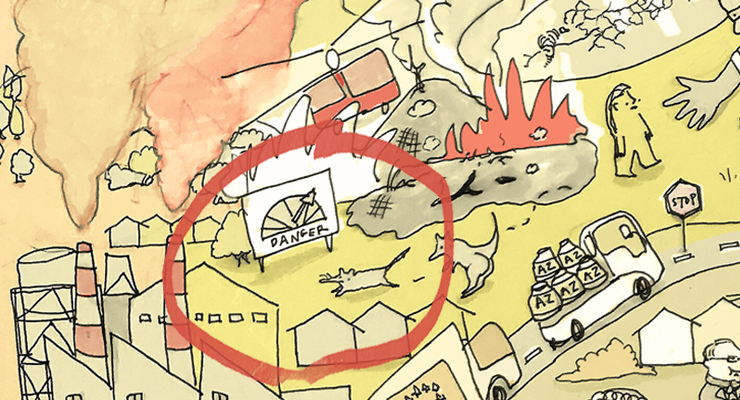It’s easy to be cynical about politics and politicians, but we mustn’t forget how important the truth is to a functioning democracy.
It’s easy to be cynical about politics and politicians. It’s easy to assume that they are careless with the truth — especially when their political interests are at stake.
It’s easy to lower one’s expectations to a point where the whole of politics is dismissed as irrelevant.
It’s especially easy to be like this when life is reasonably good; when government services such as health, education, transport infrastructure, etc are better than can be found in most other parts of the world, as they are in Australia.
However, what we take for granted today can be lost in a heartbeat — especially when our institutions lose legitimacy and there’s no check or balance to the worst forms of populism; those that thrive by playing on divisions of race, religion, class, etc.
We think this couldn’t happen in Australia. But just this year, the head of ASIO, Mike Burgess, reported that one of our domestic intelligence service’s greatest concerns is the rise of neo-Nazi groups who gather together to salute the Nazi swastika, engage in weapons practice, and so on.
You might be wondering what any of this has to do with this publication’s decision to focus on the issue of truth in politics — especially as reflected in the conduct of our prime minister, Scott Morrison.
The answer is simple — without truth no democracy can stand. This is because without truth there can be no informed consent, because without truth there can be no informed citizens.
Misleading citizens (even unintentionally) is a body-blow to democracy because all authority ultimately flows from those who have been misled.
This is a fundamental: citizens have a uniquely important role in a democracy. Ultimate authority lies in their hands — something made clear in Australia’s constitution, which can only be amended by we, the nation’s citizens.
So, it is a deeply concerning matter when citizens are wilfully, recklessly or even accidentally denied access to truthful information to inform their choices — when voting or at a referendum.
To deny access to the truth is to imperil the legitimacy of the democratic system as a whole because, in the end, it risks being built on nothing true.
The burden for truth-telling falls, in part, on the profession of journalism. Unfortunately, the mantle of being the “fourth estate” is too easily thrown off by media organisations pursuing their own agendas.
However, we should not have to rely on journalists to spot the falsehood. Instead, we should look to politicians to care for the truth as part of the obligation they owe the community they volunteer to serve.
I am not so naïve as to think there was some “golden age” when politicians were universally honest and accurate in their claims.
I realise there have always been some politicians who have simply said and done whatever served their personal and political interests.
Yet, most would at least pretend to be ashamed if caught uttering a falsehood. These days, there seems to be very little capacity for shame in politics. Even serious wrongdoing exposed by independent statutory officers is just brushed aside — the instinct for survival trumping the duty to be responsible.
The erosion in standards is taking place against a background of increasing risk to Australia and its people.
The geopolitical environment is moving away from a rules-based international order towards a pre-Westphalian state in which nations increasingly meddle in the internal affairs of their rivals.
The middle classes of the liberal democracies are about to get the shock of their lives as new technologies begin to take over their jobs. Climate change is going to put new pressure on regional and remote communities, driving them (if possible) to adapt to new seasonal conditions.
On the other hand, the same factors that threaten stability could also present positive new opportunities for a country like Australia. We have abundant resources, sophisticated technological capacity, and so much more.
The difference in outcomes will depend on the quality of leadership that is on offer and the health of our democratic institutions.
In testing times, the nation will need to be knitted together — especially as some will actively seek to break us apart. In testing times, we will need to trust those in leadership positions to make wise decisions that reflect our aspirations. Yes, in testing times, trust will be at a premium.
So, when politicians lie or are recklessly indifferent to the truth; when they are shameless in their defence of the indefensible, they do more harm than can be captured in a “gotcha” headline. They weaken the sinews of the nation at the very time when we need them to be strengthened.
Dr Simon Longstaff AO is executive director of The Ethics Centre.

Help us keep up the fight
Get Crikey for just $1 a week and support our journalists’ important work of uncovering the hypocrisies that infest our corridors of power.
If you haven’t joined us yet, subscribe today and get your first 12 weeks for $12.
Cancel anytime.
Peter Fray
Editor-in-chief of Crikey








